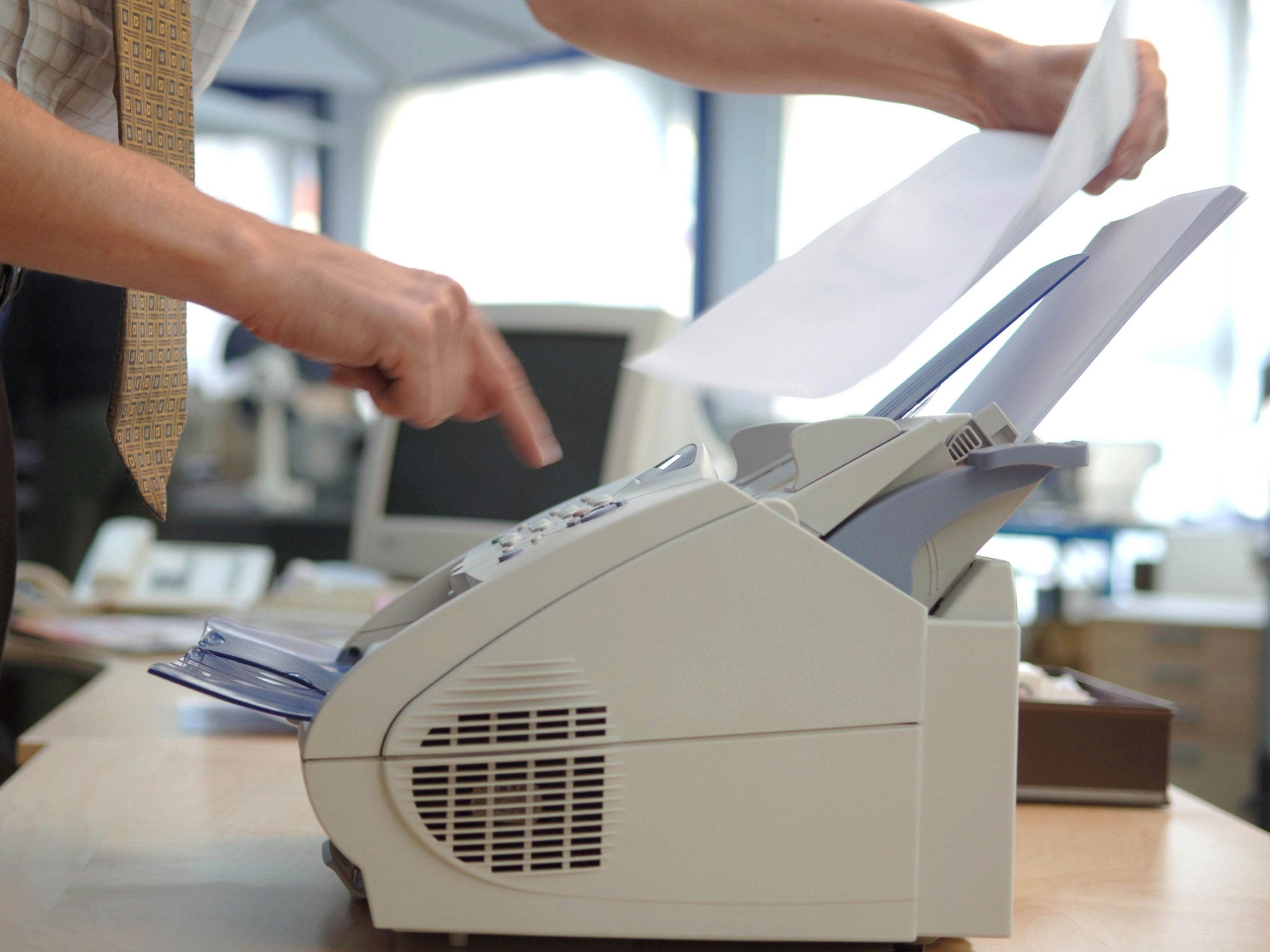The joy of fax: Why Japan refuses to enter the 21st century
Japan's affection for the fax is partly about its love of a solid paper trail

Your support helps us to tell the story
From reproductive rights to climate change to Big Tech, The Independent is on the ground when the story is developing. Whether it's investigating the financials of Elon Musk's pro-Trump PAC or producing our latest documentary, 'The A Word', which shines a light on the American women fighting for reproductive rights, we know how important it is to parse out the facts from the messaging.
At such a critical moment in US history, we need reporters on the ground. Your donation allows us to keep sending journalists to speak to both sides of the story.
The Independent is trusted by Americans across the entire political spectrum. And unlike many other quality news outlets, we choose not to lock Americans out of our reporting and analysis with paywalls. We believe quality journalism should be available to everyone, paid for by those who can afford it.
Your support makes all the difference.They call it Galapagos syndrome: Japanese technologies that have stalled or developed in isolation from the rest of the world. And one of the key exhibits is the ubiquitous fax.
While much of the developed world has decamped online, millions of Japanese still prefer to send documents by fax, according to new government figures. The study reveals fax machines are almost universal in Japanese companies, while nearly half of homes also have one. Last year, 1.7 million of the machines were sold to Japanese customers, partly to replace those lost in the March 2011 earthquake and tsunami.
In thousands of Japanese offices, secretaries still observe time-honoured protocol, printing out documents from the fax in the corner and taking them in both hands to the male boss’s desk for perusal. Nonplussed foreign customers have grown used to requests to shun email and send faxed orders. Nearly 90 per cent of Japanese businessmen still consider the fax a vital business tool.
Japan was quick to embrace fax technology in the 1980s because it meant offices could write characters from the complex writing system on paper – Japan uses three separate alphabets and about 2,000 Chinese-derived characters. Culture plays a part too: many Japanese still prefer hand-written over typed documents. “It’s considered a warmer, more personal touch,” says Atsushi Nakagawa, who runs a small import business. CVs, for example, are often written by hand, he explains.
But Japan’s affection for the fax is also partly about its love of a solid paper trail, explains Akiko Suzaki, spokeswoman for NTT Communications, one of the world’s largest telecom firms. “We mainly use email and temp files for business too, but we still use fax in some situations – like sending or accepting estimates, or sending copies of drivers’ licences.” Banks, insurance companies, real estate offices and even supermarkets still widely accept faxes, stamped with the customers’ all-important hanko, or personal seal. Smaller businesses in Japan are simply not used to emailing temp files or scanned documents and tend to fall back on the dusty facsimile, adds Ms Suzaki.
Japan has clung to the fax as its population has aged. More than a third of the population is over 65 and many pensioners have never used the internet. In an effort to bridge the gap between the fax and smartphones, NTT has begun offering new services. One allows a PC or mobile phone to send faxes over the internet using an internet protocol telephone number. The service can be reversed to allow pensioners to send messages from faxes to mobile phones.
Will efaxes finally wean millions of Japanese off their clunky machines? Perhaps, says Mr Nakagawa – but don’t hold your breath. “People value written communication very highly in his country. I don’t think the fax is going away any time soon.”
Join our commenting forum
Join thought-provoking conversations, follow other Independent readers and see their replies
Comments